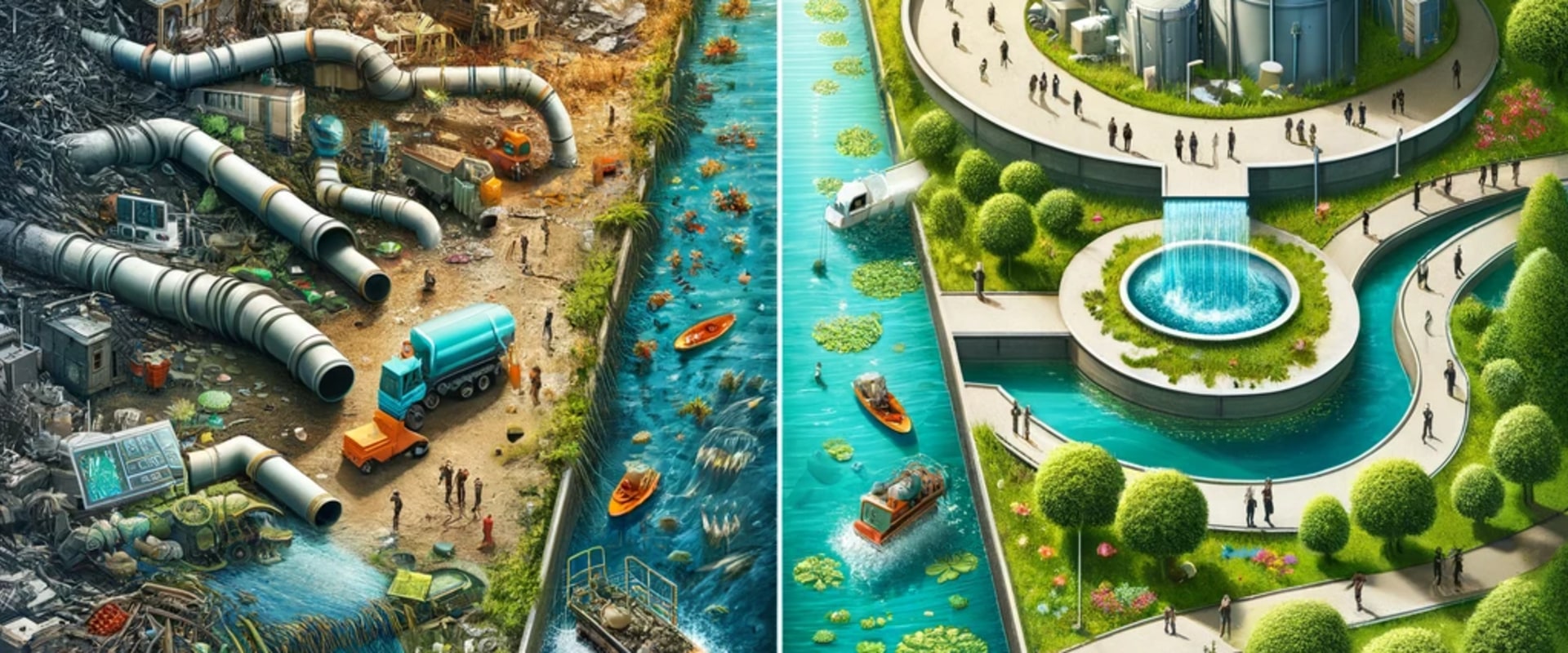In the dense fabric of urban environments, the role of 'Wastewater Supply' is increasingly critical. This article examines the challenges and opportunities presented by wastewater management in urban areas, highlighting how cities worldwide are innovating to turn these challenges into sustainable opportunities. The rapid urbanization of our world brings with it unique complexities in managing wastewater, which, if addressed innovatively, can significantly contribute to urban sustainability.
Urban Wastewater Challenges: The Growing Concerns
Increasing Demand and Limited Resources
In urban areas, the growing population and economic activities intensify the demand for water, leading to increased wastewater generation. This situation poses a challenge in terms of the efficient collection, treatment, and disposal of wastewater.
Infrastructure and Pollution
Many urban areas grapple with outdated or insufficient wastewater infrastructure, which can lead to environmental pollution and health hazards. Managing these issues effectively is key to sustainable urban development.
Opportunities in Urban Wastewater Management
Sustainable Wastewater Treatment Technologies
Innovative treatment technologies, like advanced membrane filtration and biological treatments, offer opportunities for more efficient and sustainable wastewater management in urban areas. These technologies are capable of treating wastewater to a standard where it can be reused, thus conserving water resources.
Integration with Urban Planning
Integrating wastewater management into urban planning is crucial. Cities are exploring ways to incorporate wastewater treatment within the urban landscape creatively and efficiently, such as using green spaces for biofiltration.
Wastewater Reuse: Closing the Loop
Water Reuse in Urban Areas
Reusing treated wastewater for non-potable purposes, such as landscaping, industrial processes, or even toilet flushing, can significantly reduce the strain on urban water supplies. This practice not only conserves water but also reduces the environmental impact of discharging treated wastewater into natural water bodies.
Community Engagement and Acceptance
Effective implementation of wastewater reuse strategies requires community engagement and acceptance. Education and awareness campaigns are critical in promoting the safe and beneficial reuse of treated wastewater.
Energy and Resource Recovery from Wastewater
Energy Generation
Wastewater contains organic matter that can be converted into energy. Urban wastewater treatment plants are increasingly adopting technologies to harness this potential, turning them into energy-neutral or even energy-positive facilities.
Nutrient Recovery
Recovering nutrients like phosphorus and nitrogen from wastewater can provide a sustainable source of fertilizers. This not only reduces the environmental impact of synthetic fertilizers but also adds an economic dimension to wastewater treatment.
Policy and Regulation: Shaping the Future of Urban Wastewater
Effective Policies and Regulations
Strong policies and regulations are essential to drive innovation and investment in sustainable wastewater management. Urban policymakers are developing frameworks to encourage the adoption of advanced wastewater treatment and reuse practices.
Global Examples and Best Practices
Cities around the world, from Singapore to Stockholm, offer inspiring examples of effective urban wastewater management. These case studies provide valuable insights into best practices and strategies that can be adapted and implemented in other urban settings.
Conclusion
The challenges posed by wastewater supply in urban landscapes are significant, yet they present a plethora of opportunities for sustainable urban development. By embracing innovative technologies, effective policies, and community engagement, cities can transform these challenges into opportunities for a more sustainable future. The journey towards urban sustainability through innovative wastewater management is not just necessary; it's already underway, offering a blueprint for cities worldwide to follow.











